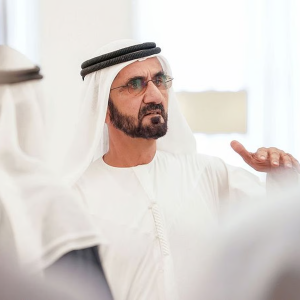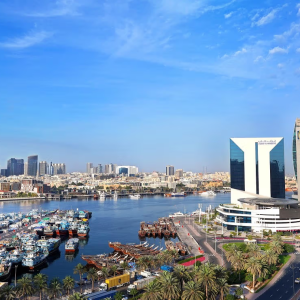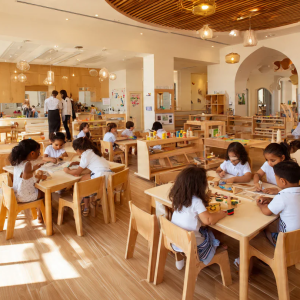UAE food security and sustainability have become key priorities for the country as it tackles global challenges such as climate change, population growth, and supply chain disruptions. Despite its harsh desert climate and limited arable land, the UAE has developed a forward-thinking strategy to ensure that its food system remains resilient, sustainable, and capable of serving future generations. By combining innovation, policy initiatives, and international partnerships, the UAE is emerging as a global leader in this vital area.
Vision 2051: A Strategic Blueprint for Food Security
At the core of the UAE’s approach is the National Food Security Strategy 2051. This ambitious plan aims to position the UAE as one of the top nations in the Global Food Security Index by 2051. The strategy focuses on several key areas, including increasing local food production, promoting sustainable agriculture, reducing food waste, and strengthening international partnerships to diversify sources of food. The plan emphasizes long-term resilience by preparing the nation for potential shocks, including climate change impacts and global supply chain disruptions.
Embracing Innovation in Agriculture
To overcome the limitations of its desert environment, the UAE is investing heavily in agricultural innovation. Projects such as the Food Tech Valley in Dubai are fostering the development of cutting-edge technologies like vertical farming, hydroponics, and aquaponics. These methods allow crops to grow with minimal water, land, and energy, making food production far more sustainable and efficient.

The UAE also promotes water-efficient farming practices and the use of renewable energy in agricultural operations. This approach reduces dependency on traditional irrigation methods and fossil fuels, helping ensure that farming can continue despite environmental challenges. By supporting technological advancement in agriculture, the UAE is making it possible to grow more food locally and reduce reliance on imports.

Strengthening Global Partnerships
The UAE recognizes that food security is not just a national challenge but a global issue. The country actively participates in international initiatives and forums to address these challenges collectively. Events like the Global Food Security Summit bring together leaders, experts, and innovators to discuss strategies and solutions to improve global food sustainability.

The UAE has also partnered with countries such as the United States on climate-friendly farming projects. These collaborations focus on supporting small-scale farmers, promoting low-emission agricultural practices, and investing in technology that can help farmers increase production sustainably. Such partnerships help the UAE gain access to new knowledge, research, and investment while contributing to global food security efforts.
Addressing Food Loss and Waste
Reducing food waste is a critical component of the UAE’s food security strategy. Programs like the UAE Food Bank’s “One Million Meals from Surplus Food” initiative collect surplus food from hotels, restaurants, and retailers and distribute it to those in need. This program not only helps feed vulnerable communities but also significantly reduces waste, creating a more efficient food system.
By promoting awareness and implementing strict regulations, the UAE encourages businesses and households to adopt sustainable practices in food handling and consumption. Reducing waste at every stage of the food supply chain is seen as essential for building a secure and resilient food system.
Sustainable Water Management
Water scarcity is a major challenge in the UAE, and the country has developed advanced solutions to address it. Desalination is a key part of the UAE’s strategy, and plants powered by renewable energy are now being deployed to ensure a steady water supply for both people and agriculture.
For example, solar-powered desalination plants are expected to produce hundreds of thousands of cubic meters of water daily, reducing reliance on conventional energy sources. These efforts are critical to maintaining the sustainability of agriculture and supporting the overall goal of food security.
Policy and Regulatory Support
Government policies in the UAE play a crucial role in promoting sustainable agriculture. Authorities provide farmers with resources, incentives, and guidance to adopt modern technologies and environmentally friendly practices. Programs focus on efficient water use, renewable energy adoption, and the development of high-tech farms. This regulatory support ensures that the country’s food production aligns with national sustainability goals while encouraging innovation across the sector.
Future Outlook
Looking ahead, the UAE’s comprehensive approach to food security and sustainability sets a benchmark for other countries. By investing in technology, fostering international collaboration, and implementing policies that support sustainable practices, the UAE is preparing to meet the demands of a growing population while protecting the environment.
The country’s efforts demonstrate that even nations with limited natural resources can become global leaders in food security. Through innovation, collaboration, and strategic planning, the UAE is ensuring that future generations have access to safe, nutritious, and sustainable food.
UAE food security and sustainability efforts are not only safeguarding the nation’s future but also contributing to global progress in combating hunger and promoting environmentally responsible agriculture. By combining visionary planning, cutting-edge technology, and strong international partnerships, the UAE is creating a model that other nations can follow to achieve food security in a changing world.
Do follow UAE Stories on Instagram
Read Next – UAE Bahrain Bilateral Relations: Powerful Boost in Cooperation












